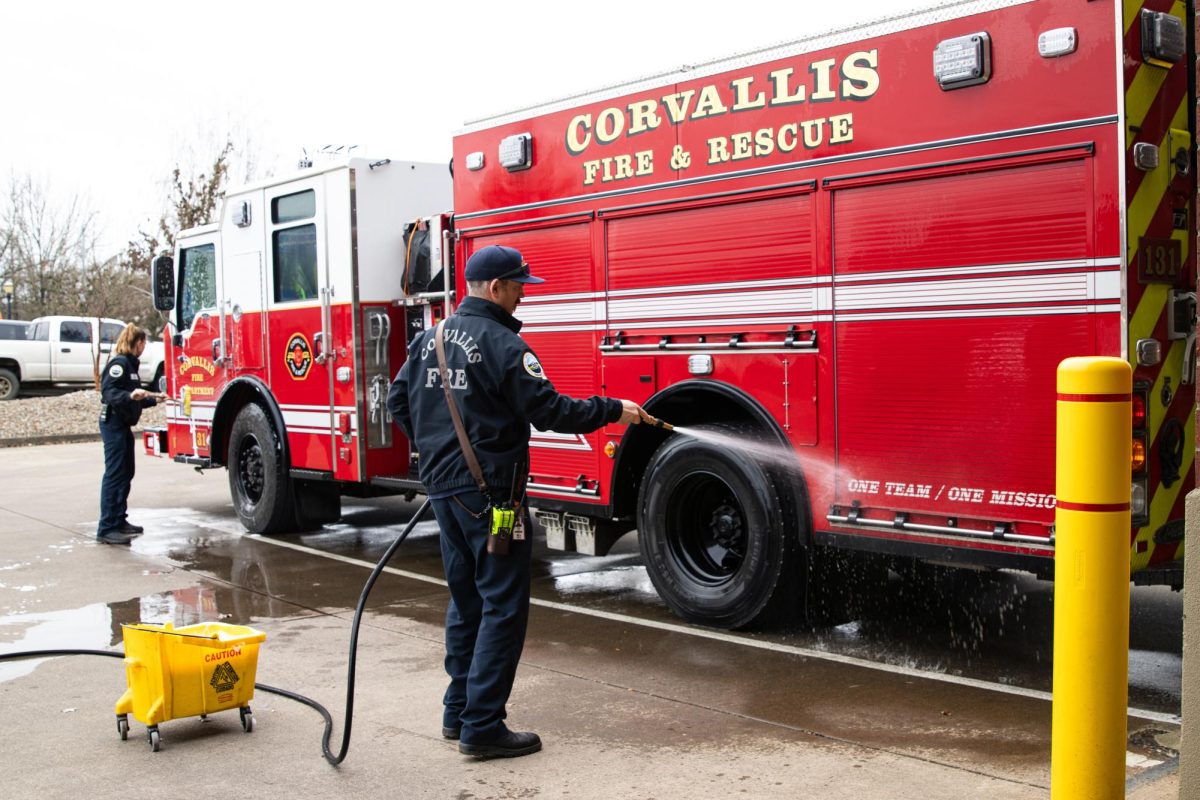Survivor Advocacy and Resource Center
September 15, 2017
In college settings, the first six to 10 weeks of fall term in college is referred to as the Red Zone.
Nationally, there have been higher reported rates of sexual assault during the Red Zone, according to Judy Neighbours, director of the Survivor Advocacy and Resource Center. While the true cause of these reports cannot be certain, it is important survivors know incidents are by no means their fault.
“There are really no guidelines that one can do to prevent an assault since the person responsible is the one committing the act,” Neighbours said in an email. “There are vulnerabilities that offenders prey upon: the newness of the situation for incoming freshman with both new friends and new environments, such as back-to-school parties that require significant adaptation, whereas many offenders are engaging in familiar behaviors.”
Prevention of sexual violence is stopping perpetrators from carrying out acts of violence, according to Neighbours.
“Sexual assault is NOT prevented by the potential victim engaging in certain behaviors or not doing certain things,” Neighbours said in an email. “We can prevent sexual violence by each of us in the OSU community becoming active bystanders when we see or hear of something that is exploitive or harmful to another person.”
If someone is unfortunate enough to experience sexual assault or violence, they should know it is never their fault and SARC is a starting point from which they can feel empowered to make the decisions needed in order for them to cope, according to Neighbours.
“SARC is a confidential place for people to come and talk about their situation, and it is a safe place for them to explore what options they want to pursue, such as seeking medical care or counseling, deciding to report to the school or law enforcement or not, getting assistance if classes become difficult, finding ways to feel safe again and helping them understand what happened to them and how they can cope,” Neighbours said in an email.
According to Michelle Bangen, the associate director for Prevention and Wellness at Student Health Services, one of the myths associated with sexual assaults is that most are committed by strangers.
“This is why common risk reduction strategies or even self defense tactics aren’t always effective,” Bangen said in an email. “Often times the victim is confused or even shocked about how someone they know and likely trust could be doing such a thing to them.”
According to Bangen, being assaulted by a friend or an acquaintance creates a huge barrier to reporting. There is often a fear of retaliation from the friend group, getting someone they care about in trouble and having to face possible future interactions with the perpetrator. Having a relationship with the perpetrator can also lead the victim to feel confused about whether the action was in fact assault, Bangen added.
“This is also why our first instinct should always be to believe and support someone who thinks they may have been sexually assaulted, regardless of their ability to resist or otherwise avoid the situation.The only person responsible for sexual violence is the perpetrator, regardless of any relationship they may have with the survivor,” Bangen said in an email.
In order to help students to feel safe being active bystanders, the Reporting Amnesty Policy allows students to fully share any information they have, whether that are witnesses, respondents, or complaints, according to Carol Millie, the director of Student Conduct and Community Standards.
According to Millie, the Reporting Amnesty Policy increases the ability for OSU to create a safe environment for its students.
“The policy removes perceived barriers students have to reporting incidents of sexual discrimination and misconduct or to fully engaging in the student conduct process to resolve allegations of sexual misconduct,” Millie said in an email.
Students involved in the situation will not be charged with a conduct violation for their personal use of drugs, marijuana or drinking, according to Millie.
“Creating and maintaining safe and equitable learning environments takes collaboration, communication and coordination with OSU students,” Millie said in an email. “If students are fearful to report an incident of sexual misconduct or if they are fearful to participate in the conduct process, community safety and equity is diminished.”
While SARC can be a great place for survivors of sexual assault or other forms of intimate partner violence to start in their road to recover, some may find that talking to a loyal friend or family member may be more comfortable according to Neighbours. SARC will still be there to help navigate any difficulties that might arise as a result of the assault.
“If a friend discloses to you, listen to them, believe what they are telling you and give them compassionate support,” Neighbours said in an email. “Your reaction makes a difference to their doing better.”


















































































![Newspaper clipping from February 25, 1970 in the Daily Barometer showing an article written by Bob Allen, past Barometer Editor. This article was written to spotlight both the student body’s lack of participation with student government at the time in conjunction with their class representatives response. [It’s important to note ASOSU was not structured identically to today’s standards, likely having a president on behalf of each class work together as one entity as opposed to one president representing all classes.]](https://dailybaro.orangemedianetwork.com/wp-content/uploads/2025/03/Screenshot-2025-03-12-1.00.42-PM-e1741811160853.png)























